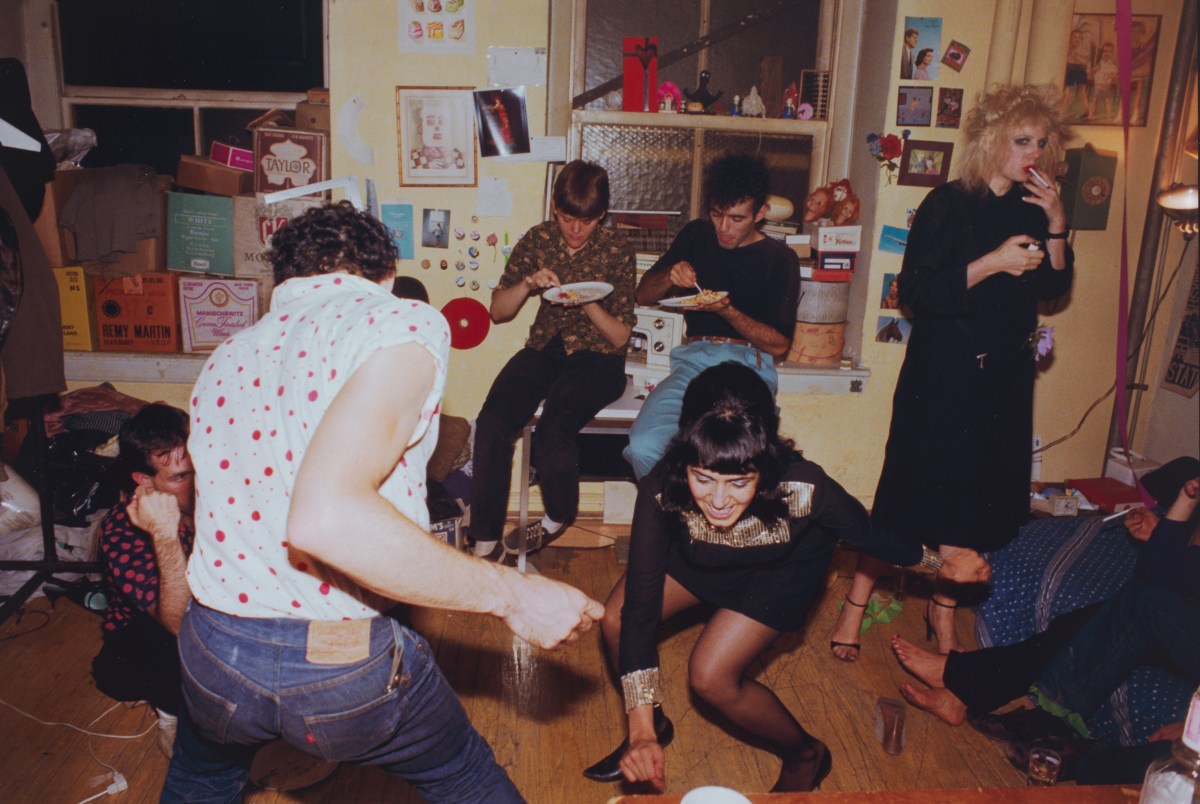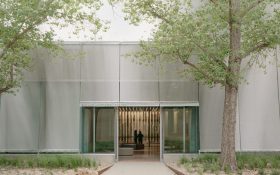Since Nan Goldin’s photo book, The Ballad of Sexual Dependency was first published in 1986, it has never been out of print. The series is lauded as Goldin’s defining work as she captures the real faces and stories of the LGBTQIA+ community during the height of the HIV Aids crisis.
Ballarat is a long way from 1980s New York, but it is a distinctive experience to view excerpts from this collection, with its exploration of violence and rebellious love, in the context of the town’s problematised history of stolen land, gold rush activity and civil disobedience.
Goldin’s practice is inextricable from her activism and commitment to making the private public – the “private” being the naked body, the sexual body, the queer body, pleasure and pain. Goldin believes platforming these messy affairs in a public realm is ‘a political act, and the only way the world can – anything can – change, is if people talk about it’.
Fifty years after the subjects in her images danced, slept, ate, loved, fought, lived and died in Boston, New York and Berlin – people are still talking about it.
The gallery space is stripped back – a nostalgic soundtrack plays cinematic music, while simple black frames with white borders allow the images to speak for themselves. The exhibition is not strictly chronological. Photos are often grouped by subject matter: cars, beds, couples, crying. Or collisions, injuries, children, joy. It is through the recurring names of the subjects, often stated plainly in the titles, that we reconstruct and follow the lives of Goldin and her companions.
A selection of publications by and about the artist are displayed alongside the collection, including an introduction for In the Valley of the Shadow, 1989. Goldin describes the experience of returning to New York to curate a show about the AIDS pandemic that became less about the issue itself and more of a collective memorial for those who had fallen ill or died from the disease.
While the photographs are deeply candid and intimate, there is an art to constructing this closeness. Goldin draws inspiration from film – a mise en scène of discarded cans, books, single shoes, empty cardboard boxes and dirty laundry tell as much of a story as the subjects themselves. Each image could be a still from a scene, and often feel in the middle of something – Shelley leaving the room, Twisting at my birthday party, Brian with the Flintstones – TVs flicker and landscapes blur in the background to remind the viewer that while photography is still, life is always in motion.
In Susan Sontag’s essay book, On Photography, she writes, ‘To photograph is to appropriate the thing photographed.’ This is not true of Goldin, who is entangled in the lives of her subjects, removing the traditional hierarchy between photographer and focus. One of the most confronting images in the collection is a self-portrait titled Nan, One Month After Being Battered, 1984 – Goldin looks directly into the camera with a blood red eye and a bruised face, reinforcing the message that the personal is political, particularly when it comes to bodily and sexuality rights.
Exposing these often secret moments – a healing scar from an ectopic pregnancy, the throes of queer sex, the aftermath of domestic violence – draws attention to progress, or lack thereof, particularly in the US, where in 2024 trans people still face daily violence, drag queens are demonised, abortion rights are overturned and marginalised communities, especially queer people of colour, are still fighting for the right to exist.
Read: Exhibition review: Yucky, Adelaide Contemporary Experimental
This is a testament to the enduring relevance of Goldin’s work, which at its heart is about community care in the absence of systems that work. As Goldin writes, ‘I have witnessed this community take care of its own, nurse its sick, bury its dead, mourn its losses and continue to fight for each other’s lives. We will not vanish.’ To witness The Ballad of Sexual Dependency is to participate in this collective remembering and the impact is intensely felt.
Curator: Anne O’Hehir
Nan Goldin: The Ballad of Sexual Dependency will be on display until 2 June 2024 at Art Gallery of Ballarat; free.





